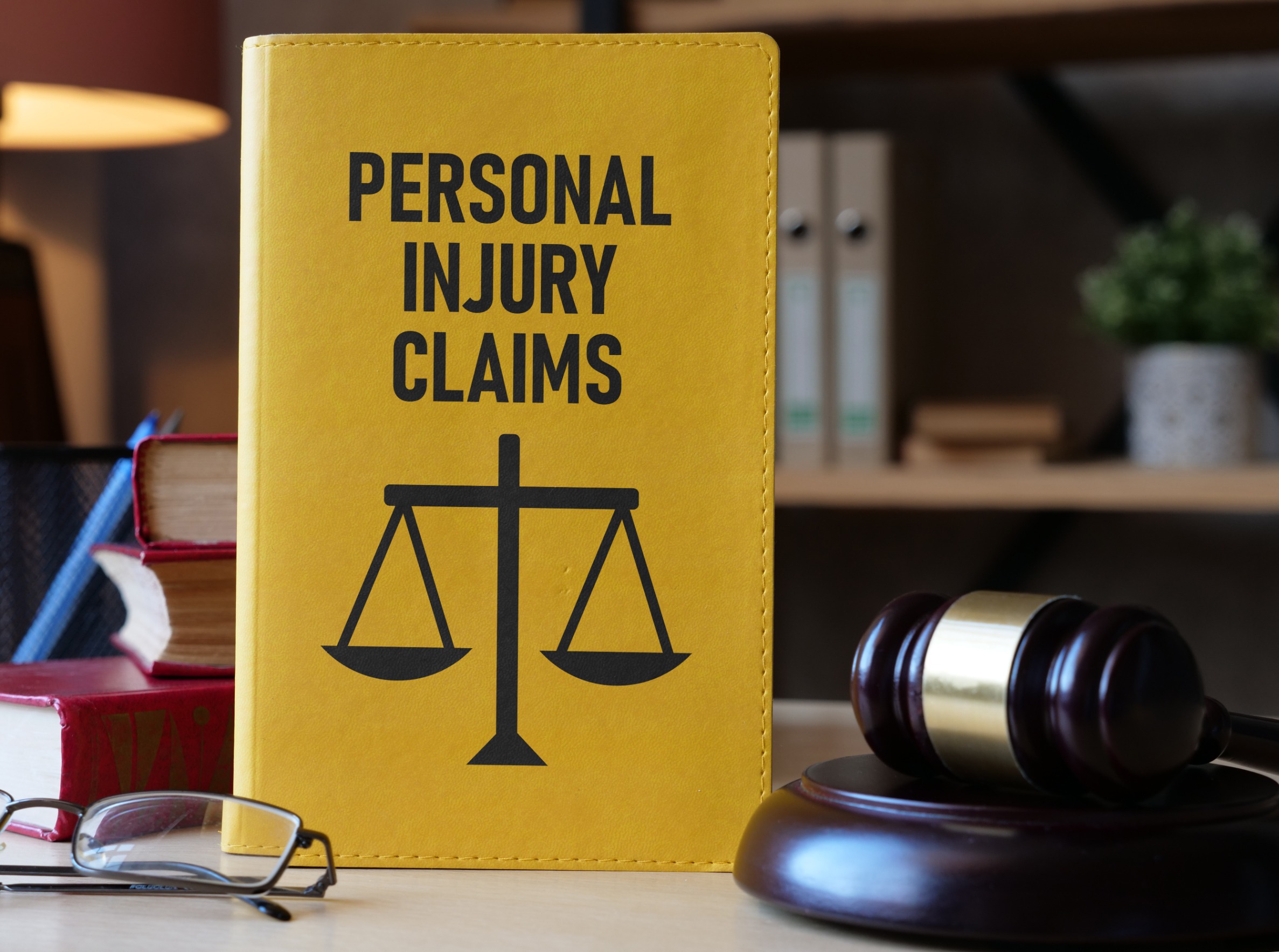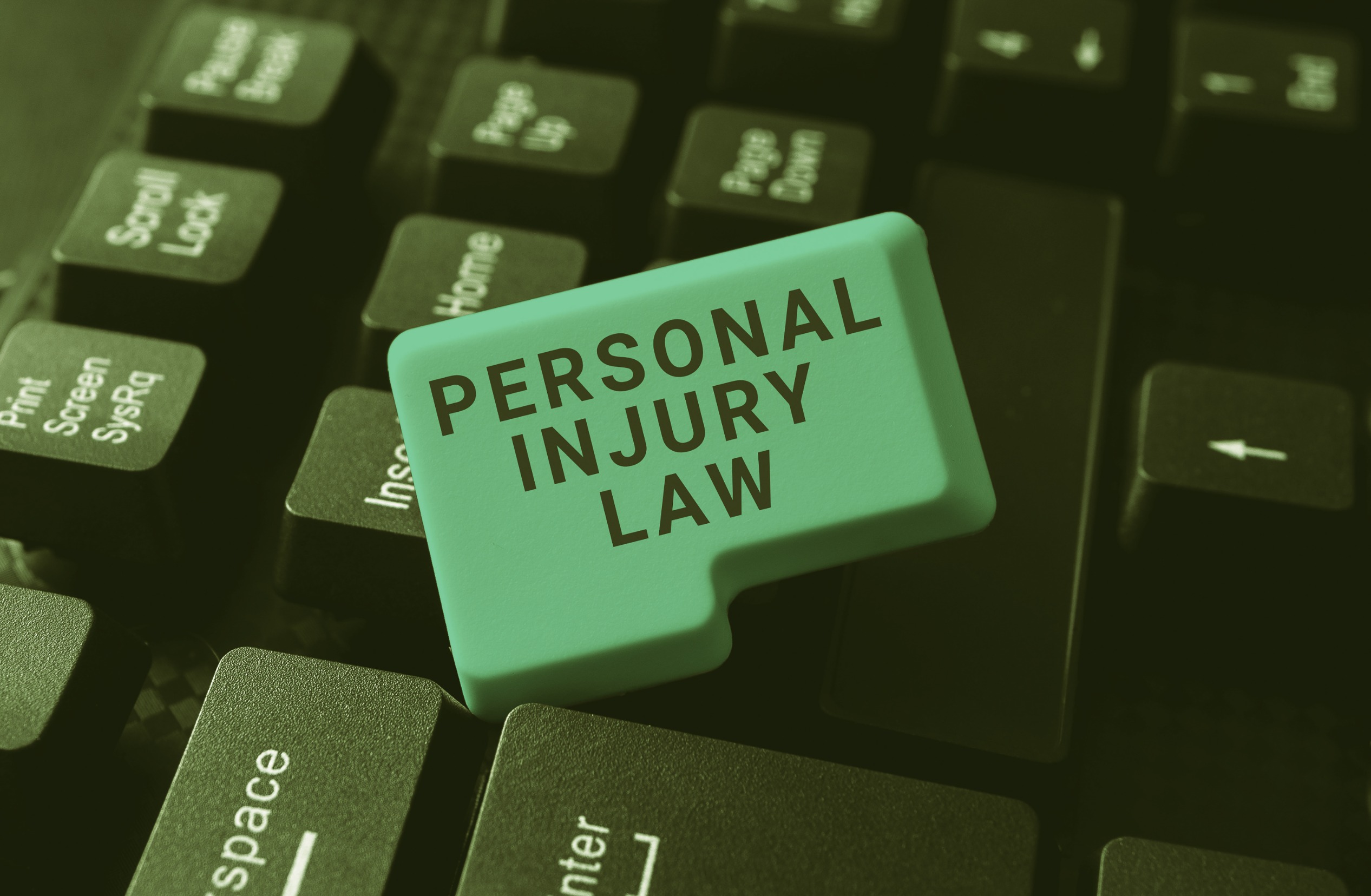In this guide, we explain how to claim personal injury compensation. A personal injury claim is legal action taken against a potentially responsible party who has caused a person to suffer harm through negligent actions or inaction. Compensation looks to compensate for physical pain and emotional damage caused by a liable party. It can also restore any financial losses caused by the injuries.
As we move through this guide, we will look at the types of accidents that could result in a personal injury claim as well as the eligibility criteria you must meet in order to seek compensation. We’ll also look at the personal injury claims process and how compensation is awarded for a successful case.
If you have a valid case, you may like to instruct a solicitor to support your personal injury compensation claim. One of the experienced personal injury solicitors from our panel could help you by:
- Guiding you through how to claim personal injury compensation.
- Helping you obtain compelling evidence.
- Explaining legal jargon.
- Filing your claim within the relevant time limit.
- Valuing your claim.
This guide concludes with a look at how one of the personal injury solicitors from our panel could support your claim on a No Win No Fee basis.
If you have any questions about how to claim compensation or would like to discuss your potential case further, please speak with a member of our advisory team. A team member is available with free advice 24 hours a day, 7 days a week, to talk about how to claim personal injury compensation. To connect with an advisor:
- Call 0800 408 7825
- Fill in our contact us form and a member of the team will call you back.
- Post your questions in our live chat.
Browse Our Guide
- How To Claim Personal Injury Compensation?
- What Types Of Accidents Could Lead To A Personal Injury Compensation Claim?
- What Is The Pre-Action Protocol For How To Claim Personal Injury Compensation?
- Is There A Time Limit For Personal Injury Claims?
- How Much Compensation For A Personal Injury Could You Receive?
- What Are The Whiplash And Small Claims Personal Injury Changes?
- How Long Will My Personal Injury Claim Take?
- How No Win No Fee Solicitors Can Support Personal Injury Compensation Claims?
- Learn More About How To Claim Personal Injury Compensation
How To Claim Personal Injury Compensation?
In order for personal injury compensation claims to be valid, they must meet certain eligibility requirements. You must have compelling evidence that shows that:
- You were owed a duty of care by a third party. A duty of care is a legal obligation placed on an individual or an organisation (defendant) to take proper care to avoid causing some form of foreseeable harm.
- This party breached their duty of care through their actions or inactions.
- You suffered an injury because of this breach. Your injury could be physical, mental or both. Additionally, your settlement may include compensation for more than one injury if you suffered it in the same accident. You can also claim for a worsening of a condition you already had. For example, if you already suffered problems with your back but then fell down the stairs in a public place and this resulted in the exacerbation of your pre-existing back condition, you could claim for this.
Please speak to a member of our advisory team to discuss these eligibility requirements and for a free initial consultation without any obligation to proceed with our services.
What Types Of Accidents Could Lead To A Personal Injury Compensation Claim?
In different areas of everyday life, you will be owed a duty of care by an individual or an organisation. It is when this duty of care is breached, causing an injury, has negligence occurred for which a personal injury claim can be pursued. Different pieces of legislation set the duty of care to be applied in these areas. Below, we take a look at a few of these.
- Accidents at Work. Every employer has a legal duty set under the Health and Safety at Work etc. Act 1974 (HASAWA) to ensure, as far as reasonably practicable, the health, safety and welfare of their employees while they are at work.
- Accidents in a Public Place. Whilst in a public space and using it for its intended purpose, the individual or organisation in charge (the occupier) of that space must ensure your reasonable safety. This is their duty of care as set by the Occupiers’ Liability Act 1957.
- Road Traffic Accidents. When using the roads, vehicle drivers, motorbike users, cyclists, and pedestrians, as well as any other road user, must navigate in a way that prevents injury and damage to themselves and others. This is the duty of care that road users must adhere to. As part of their duty, they should comply with any relevant rules and regulations found in the Highway Code and the Road Traffic Act 1988.
In each one of these situations, you will need to prove that the party or person responsible breached the duty of care set out in the legislation and that this caused your injuries in order to have good grounds to claim.
One of the advisors from our team can answer any questions you may have about how to claim personal injury compensation.
What Is The Pre-Action Protocol For How To Claim Personal Injury Compensation?
There is a specific process to follow on how to claim personal injury compensation. This is known as the Pre-Action Protocol for Personal Injury Claims. Although following the Protocols doesn’t guarantee your claim will stay out of court, you could reach an earlier settlement. Important aspects of the Pre-Action Protocol include:
- Sending a letter of notification to inform the defendant that a claim is likely to be made.
- Rehabilitation to discuss how reasonable medical needs could be met.
- Sending a letter of claim that includes a clear summary of the facts that form its basis, plus the nature of the injuries you sustained and any monetary losses these injuries caused.
- Status of the letters of claim and response. The defendant has up to 21 calendar days to respond and three months to investigate.
- Documents disclosure, which is the exchange of any relevant information to help resolve the claim for compensation.
- Expert reports, such as an independent medical report detailing the nature of your injuries.
- Negotiations. This is where the defendant accepts, denies or negotiates. They may offer you a settlement at this stage, but you may decide to negotiate this amount.
- Resolution. If your claim isn’t settled at this stage, it may go to court.
If you have any questions about the process for making personal injury compensation claims, please get in touch with a member of our advisory team.
Is There A Time Limit For Personal Injury Claims?
You must initiate legal proceedings, the litigation part of the personal injury claim, within a specific time frame. For personal injury compensation claims, this is typically three years from the date of the accident that caused your injuries as set by the Limitation Act 1980.
However, in some circumstances, the limitation period may be suspended. In these cases, a litigation friend may be able to bring forward the compensation claim on behalf of the injured party at any time during this suspension. A litigation friend could be appointed by the court, or you can apply to be one. The role involves directing the proceedings in the best interests of the injured party.
Cases where a suspension could be applied include:
- Adults without the mental capacity to pursue a claim. These parties are known as ‘protected parties’. The time limit is suspended for as long as they are without this capacity. However, if they regain their capacity and a litigation friend did not claim for them, they will have three years from the date it was deemed they recovered this capacity to initiate proceedings.
- Children under the age of 18 at the time of the accident. These parties cannot start a claim themselves until their 18th birthday. They will have three years from their 18th birthday to begin the proceedings.
A member of our advisory team can check your case and see if you are still within the time limit to pursue a claim.
How Much Compensation For A Personal Injury Could You Receive?
When you make a successful claim for compensation, your settlement could consist of two parts. These are known as general and special damages.
General damages payout for the physical pain and emotional distress symptoms caused by the accident. To help when valuing general damages, those tasked with evaluating claims may refer to the compensation brackets found in the Judicial College Guidelines (JCG). This is a document that lists compensation guidelines for different injuries.
Our table provides a few figures from the 16th edition of the JCG. Additionally, it looks at a figure that shows how much compensation you could be awarded for multiple severe injuries and special damages. This figure, found at the top of the table, is not from the JCG. As personal injury compensation claims are valued on their individual merits, the table does not represent how much you could be awarded.
| Injury | Severity | Information | Compensation Guidance |
|---|---|---|---|
| Multiple Serious Injuries and Special Damages | Very Severe | Compensation for more than one serious injury and associated financial losses could be included in settlements. | Up to £1,000,000+ |
| Brain Damage | Very Severe | Injured parties lack meaningful environmental responses and require full-time nursing care. | £282,010 to £403,990 |
| Arm Amputations | Loss of Both Arms | The injured party has full awareness of their state of considerable helplessness. | £240,790 to £300,000 |
| Back Injury | Severe (i) | The claimant suffered very serious consequences as a result of damage to their spinal cord and nerve roots. | £91,090 to £160,980 |
| Neck Injury | Severe (ii) | The injured party suffers considerably severe disabilities due to serious fractures or damage to the cervical spine. | £65,740 to £130,930 |
| Foot Injuries | Very Severe | The injury causes permanent severe pain or a really serious disability. | £83,960 to £109,650 |
| Leg Injuries – Severe | Very Serious | The claimant suffers permanent mobility problems due to multiple fractures. | £54,830 to £87,890 |
| Facial Disfigurement | Less Severe Scarring | The claimant suffers a psychological reaction that is significant in nature to substantial disfigurement. | £17,960 to £48,420 |
| Wrist Injuries | Significant | Injured parties have some useful movement left but the injury has caused significant permanent disability. | £24,500 to £39,170 |
| Toe Injuries | Severe | This bracket includes injuries that cause significant continuing symptoms. | £13,740 to £21,070 |
What Financial Losses Can You Claim For?
You may also be eligible to claim compensation for any monetary losses caused by your injuries under special damages. Examples of claimant reimbursements include:
- Nursing and care costs.
- Mobility aids.
- Loss of earnings.
- Adaptations made to your home to accommodate your injuries, such as the installation of a stairlift.
- Prescriptions and over-the-counter painkillers.
- Home help, such as a cleaner or childcare while you recover.
- Out-of-pocket expenses towards ongoing medical treatment.
You should submit evidence of your expenses, such as bank statements, invoices and receipts.
A member of our team can discuss how to claim personal injury compensation. They can also advise you on how much your claim could be worth as well as discuss what you could claim under special damages.
What Are The Whiplash And Small Claims Personal Injury Changes?
Personal injury compensation claims for low-value injuries sustained in vehicle collisions are now made in a different way for certain claimants. These changes apply to injuries that occurred on or after the 31st of May 2021. This is due to the Whiplash Reform Programme. The Reforms apply to all low-value injuries to adult passengers or drivers inside a vehicle.
If the following applies to you, then it may mean your personal injury claim after a road traffic accident is made in a different way:
- The accident occurred in England or Wales.
- You are a passenger or driver of a vehicle involved in the collision.
- Your injury value is £5,000 or less.
- You must be aged 18 or older at the time of the collision.
Whiplash injuries will be valued in accordance with the tariff found in the Whiplash Injury Regulations 2021. Injuries that are not covered by the tariff may be valued in accordance with the JCG.
To find out whether your personal injury claim is affected by the Reform, please call our advisors for free advice and assessment of your case.
How Long Will My Personal Injury Claim Take?
You might be concerned with how long it will take from the time you start your claim to the time it takes to receive your settlement should you have a successful case. As no two personal injury compensation claims are the same, there isn’t a specific timeframe to reach a settlement. A lot of different factors will be considered when estimating how long it’ll take for your claim to be settled. These include:
- Claim complexity. A more straightforward case will typically reach a settlement sooner.
- Evidence strength. Stronger evidence could help the claim settle sooner.
- Liability. If the other party accepts liability then the case is likely to settle sooner. Whereas if they deny liability, you might need to obtain additional evidence. They could argue that you were partially responsible for your injuries in what is known as a split liability case.
- Negotiations. The other party may offer you a settlement, but if you do not believe that this fully compensates you, you might instruct your solicitor to negotiate for a higher amount.
- Injuries. If your injuries are complex, it may take longer to understand what impact they could have on your life.
A personal injury solicitor with years of experience might be able to give you a rough estimate of how long it will take for your claim to be settled. In the next section, we are going to look at how one of the experienced personal injury solicitors from our panel could provide their legal representation on a No Win No Fee basis.
How No Win No Fee Solicitors Can Support Personal Injury Compensation Claims?
If you are eligible to claim compensation for your injuries, you might like to have a solicitor to guide you through the personal injury claims process. If so, one of the solicitors from our panel could help. Our panel typically provide their legal services under a Conditional Fee Agreement (CFA). This is a type of No Win No Fee agreement.
A personal injury compensation claims solicitor who works under the terms of a CFA, doesn’t collect upfront or ongoing payments for their services. Additionally, if your claim is not successful, there won’t be a fee payable for your solicitor’s work on your case.
However, a success fee will be taken from your award if your claim has a successful outcome. This fee is a legally capped percentage.
If you would like to know more about how to claim personal injury compensation, one of our advisors could help. They can answer questions you have about the claims process and provide a free no obligation evaluation, which could include a valuation. Additionally, if you satisfy the eligibility requirements, you could be connected to one of the No Win No Fee solicitors from our panel.
To speak with a member of the advisory team:
- Call 0800 408 7825
- Fill in our contact us form and a member of the team will call you back.
- Post your questions about how to claim personal injury compensation in our live chat.
Learn More About How To Claim Personal Injury Compensation
These extra guides may help you understand more about how to claim personal injury compensation:
- Information about making a fatal injury claim on behalf of a loved one.
- Guidance about how compensation for multiple injuries could be calculated.
- An article explaining compensation for psychological damage and how to make a claim.
Here are a few external links you might find useful:
- Workplace health and safety is monitored and regulated by the Health and Safety Executive (HSE). Their role includes ensuring workforce protection and public assurance.
- Guidance on First Aid from the NHS.
- Information about First Aid on the Road from the Highway Code.
Contact our advisors to discuss any further questions about how to claim personal injury compensation.





